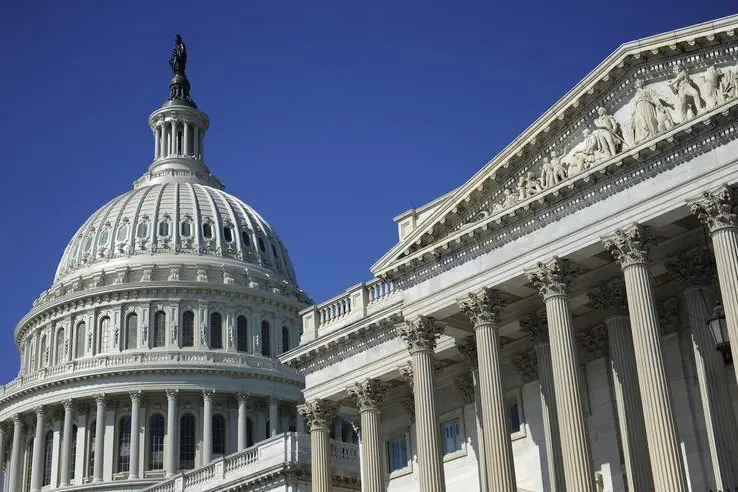PHOTO
SAN FRANCISCO - The U.S. Senate is taking pressure on China to a new level. A bipartisan bill doing the rounds on Tuesday would impose sanctions on Beijing officials and local banks if the country puts into place fresh curbs on Hong Kong. Tensions between the two superpowers are already high. The legislation would bump that up several notches.
Anger against China has united a usually divided Congress. The Senate plan would freeze U.S. property assets of individuals responsible for implementing a proposed Hong Kong national-security law. Unlike past legislation, Chinese banks doing significant business with those officials would also be targeted, cutting them off from American counterparts and limiting access to U.S. dollar transactions. Democratic lawmaker Chris Van Hollen, a bill co-sponsor, said on Tuesday that the intention was to hit the communist party “where it hurts.”
President Donald Trump, who has made his anti-China credentials part of his re-election campaign, has been reluctant to impose such sanctions in the past. That’s because he wants to avoid jeopardizing a trade deal with China. Last November, the president reluctantly signed a congressional bill to impose sanctions on Chinese officials responsible for human-rights abuses in Hong Kong. But he has yet to act on that authority.
The pandemic has changed Washington’s calculus. Trump’s anger over Beijing’s handling of the coronavirus outbreak in Wuhan has led him to rethink the so-called Phase One trade pact, now saying it’s secondary to Covid-19.
Sanctions are a red line for Beijing. Crossing it raises the potential for revenge against U.S. companies beyond retaliatory tariffs. China could reverse moves to open up to U.S. financial institutions. That would, for example, impact JPMorgan, which in April said it would seek full ownership of its Chinese asset-management joint venture after foreign shareholder caps were lifted; it’s also building a brokerage business there.
The People’s Republic could in addition follow through on threats to put U.S. companies like Apple, Boeing and Qualcomm on a so-called unreliable-entity list. That could restrict their business and may even spark calls for boycotts.
In other words, sanctions could lead to certain ties being cut altogether. That would have a higher economic – and political – impact than the increased costs businesses and consumers faced from the tit-for-tat tariff increases. But that’s the kind of fallout America’s policymakers seem increasingly willing to tolerate.
CONTEXT NEWS
- U.S. Senator Chris Van Hollen said on May 26 that his proposal to impose new sanctions on China if it imposes a national-security law on Hong Kong would hit the country’s communist party “where it hurts.” The bill would target not only individuals responsible for implementing the rules curbing freedoms in Hong Kong but also domestic Chinese banks that do business with them. It’s co-sponsored by Republican Senator Pat Toomey.
(Editing by Antony Currie and Sharon Lam) ((gina.chon@thomsonreuters.com; Reuters Messaging: gina.chon.thomsonreuters.com@reuters.net))





















